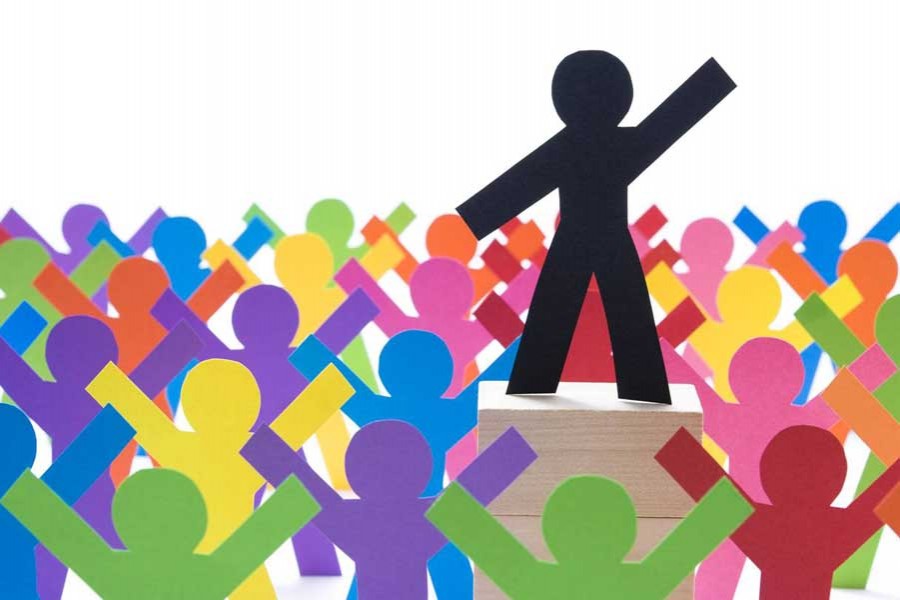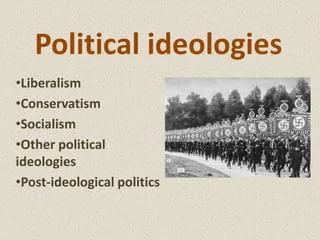Analyzing the Impact of Political Polarization on Democratic Governance and Social Change
It has seeped into the very fabric of societies, affecting not only the political arena but also social interactions and individual beliefs.

The Polarization Predicament: Navigating the Impact on Democratic Governance and Social Cohesion
In recent years, political polarization has become a defining feature of many democracies around the world. It has seeped into the very fabric of societies, affecting not only the political arena but also social interactions and individual beliefs. This deepening divide has raised concerns about its consequences on democratic governance and social cohesion. This article delves into the multifaceted impact of political polarization, examining how it shapes the functioning of democratic systems and the cohesion of societies.
Understanding Political Polarization
Political polarization refers to the growing ideological distance between political parties and their supporters, resulting in an "us versus them" mentality. This division manifests in various ways, such as extreme partisanship, reduced cooperation across the aisle, and the echo-chamber effect in media consumption. But what are the repercussions of this phenomenon on democratic governance and social cohesion?
Impact on Democratic Governance
Gridlock and Inefficiency
One of the most immediate consequences of political polarization is the gridlock that ensues in legislative bodies. When parties become more polarized, finding common ground and passing legislation becomes increasingly challenging. This gridlock undermines the ability of governments to address pressing issues, leaving important policy matters unresolved.
Erosion of Trust in Institutions
Polarization erodes trust in democratic institutions. As parties grow further apart, their supporters become more distrustful of the political process, believing that the other side is inherently corrupt or illegitimate. This skepticism can undermine the very foundation of democratic governance, as trust in the system is essential for its stability.
Decline in Bipartisanship
Polarization also diminishes the spirit of bipartisanship, which is crucial for crafting effective policies. When politicians prioritize party loyalty over cooperation, it becomes difficult to pass comprehensive and sustainable legislation. Bipartisanship is essential for addressing complex challenges, such as climate change or healthcare reform, which require nuanced solutions.
Impact on Social Cohesion
Echo Chambers and Information Silos
Political polarization contributes to the creation of echo chambers and information silos, where individuals are exposed only to viewpoints that align with their beliefs. This leads to confirmation bias and the reinforcement of extreme positions. As a result, citizens are less likely to engage in constructive dialogue with those holding opposing views, exacerbating societal divisions.
Increased Social Tensions
The "us versus them" mentality fueled by polarization can lead to increased social tensions. People are more likely to view those with different political beliefs as enemies rather than fellow citizens. This hostility can spill over into everyday life, affecting personal relationships, workplaces, and communities.
Threats to Social Capital
Social cohesion relies on a sense of social capital, which includes trust, reciprocity, and a willingness to cooperate. Polarization erodes these elements by fostering an atmosphere of suspicion and hostility. As social capital declines, communities may struggle to address shared challenges and maintain their resilience in the face of crises.
Combating Political Polarization
While the impact of political polarization on democratic governance and social cohesion is undeniable, it is not an insurmountable challenge. Strategies to mitigate polarization include:
Promoting Media Literacy: Encouraging critical thinking and media literacy can help individuals navigate the information landscape more discerningly, reducing the influence of echo chambers.
Electoral Reforms: Reforming electoral systems, such as implementing ranked-choice voting or proportional representation, can incentivize parties to appeal to a broader range of voters and reduce polarization.
Civic Education: Strengthening civic education can instill a sense of civic responsibility, fostering greater political engagement and understanding among citizens.
Encouraging Cross-Partisan Dialogue: Initiatives that promote respectful and constructive dialogue across partisan lines can help bridge divides and rebuild social cohesion.
The Role of Leadership
Leadership plays a pivotal role in shaping the impact of political polarization. Political leaders have the ability to either exacerbate or alleviate the divide within a society. Here are some ways leadership can make a difference:
Bridge-Building Leadership: Leaders who prioritize unity and compromise over division can set a positive example for their followers. They can engage in cross-party cooperation and emphasize the importance of respectful discourse.
Messaging and Rhetoric: The words and rhetoric used by political leaders can either inflame or defuse tensions. Leaders should be cautious about using polarizing language that further divides their constituents.
Encouraging Civil Discourse: Leaders can actively promote civil discourse and discourage toxic behavior among their supporters. This includes condemning hate speech and online harassment.
Inclusivity: Leaders should strive to be inclusive in their policies and appointments, reflecting a diverse range of perspectives and backgrounds within their administration.
International Perspectives
Political polarization is not unique to one country or region. It is a global phenomenon that affects democracies around the world. Learning from international experiences can offer valuable insights into addressing polarization:
Comparative Studies: Comparative studies of how different countries have managed or failed to manage political polarization can provide valuable lessons for policymakers.
Diplomacy and Global Collaboration: In an interconnected world, diplomacy and international collaboration are critical. Countries can work together to address shared challenges, and diplomatic efforts can set a positive example for domestic politics.
Soft Power: The soft power of democracies is closely linked to their ability to promote democratic values, including tolerance and pluralism. Demonstrating these values in practice can have a positive impact on international perceptions.
The Future of Democracy
The impact of political polarization on democratic governance and social cohesion is a significant challenge that democracies must confront. The future of democracy depends on how effectively societies address this issue. To secure democratic values and principles, the following considerations are essential:
A Return to Civic Virtue: Encouraging civic engagement, critical thinking, and active participation in democracy can help citizens take a more informed and responsible role in the political process.
Strengthening Institutions: Reforms that strengthen democratic institutions, such as independent judiciaries and robust checks and balances, can help safeguard against the corrosive effects of polarization.
Long-Term Perspective: Addressing political polarization requires a long-term perspective. Policies and initiatives aimed at reducing polarization may take years or even decades to yield results.
Social Cohesion Initiatives: Investing in programs that promote social cohesion, intergroup dialogue, and community building can help heal societal divisions.
Political polarization is a complex and multifaceted challenge that affects both democratic governance and social cohesion. While its impact is undeniable, it is not an insurmountable obstacle to the health and vitality of democracies. By fostering leadership that prioritizes unity, promoting civic education, and engaging in international collaboration, societies can navigate the polarized landscape and strengthen their democratic foundations.
The future of democracy depends on the collective efforts of citizens, leaders, and institutions to address polarization and build a more inclusive and cohesive society. It is through such efforts that democracies can continue to thrive, uphold their core values, and provide a model for the world to follow.
Top of Form
What's Your Reaction?
















